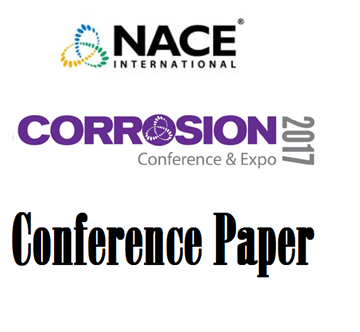Search
51316-7831-Lessons Learned from Development of a CUI Coating
Also Purchased
51315-5757-CUI Mechanism and Prevention
Product Number:
51315-5757-SG
ISBN:
5757 2015 CP
Publication Date:
2015
$0.00
Performance of Next Generation CUI Mitigation Systems
Product Number:
51317--9331-SG
ISBN:
9331 2017 CP
Publication Date:
2017
$20.00
51314-4079-Solution to Corrosion Under Insulation (CUI) with Three Layered CUI Control and CUI Warning Systems
Product Number:
51314-4079-SG
ISBN:
4079 2014 CP
Publication Date:
2014
$20.00
Recently viewed




